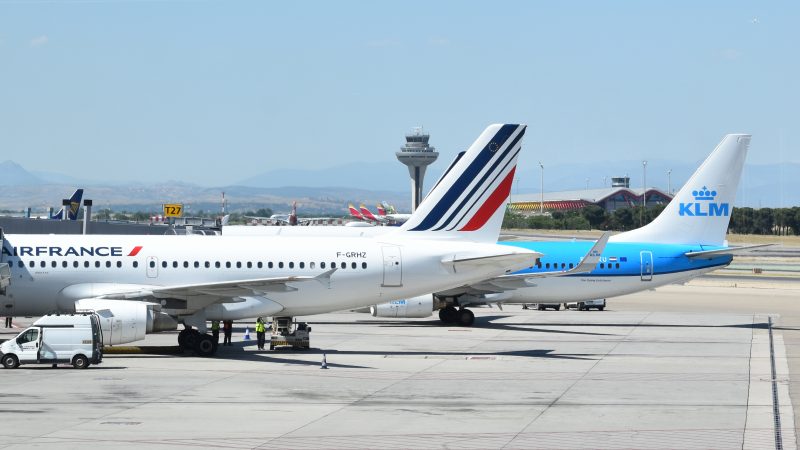08 Jul 2020 Companies are receiving financial State aids aimed at accelerating economic recovery
Many companies worldwide have been receiving financial state aids to counteract the effects of the economic crisis brought by COVID19. Different rules and limitations apply to approved aids and beneficiary firms in Europe and the US.
Since the advent of coronavirus, businesses have been receiving state aids to counteract the effects of the economic crisis.
In the US, businesses have received at least half a trillion dollars from the American Government, under the form of forgivable loans, which are meant to be spent by firms on workers’ salaries and on regular expenses. However, the government has refused to reveal which companies are receiving the loans and none of the beneficiary corporations are required to disclose how they are spending the money. Any information on the loans’ destination exposed up to now comes from voluntary disclosures or leaks by whistleblowers or regulatory filings. What is known is that small and local businesses have been struggling to get access to the funds, which have been primarily used to support big corporations across the country.
In Europe, normally, state aids are not permitted by the EU because they create disparities and undermine the level playing field in which companies operate. However, a temporary framework has been implemented to support and boost the economic recovery from the Covid-19 pandemic. By May 28th, almost 200 subsidy schemes and bail-outs – worth more than €2trillion – have been granted by the European Union, of which nearly half has been received by Germany. Particular rules apply to approved state aids. Firstly, firms who receive financial aid are not allowed to take “excessive risks” or to undergone “aggressive commercial expansions” while still repaying the state. These limitations are aimed at preventing distortions of competition. Companies that have received equity by European states are not allowed to pay dividends, buy-back shares, or provide bonuses or similar types of remuneration. Companies who receive aids are required to disclose how they are using the money, in particular, they should publish information on how the funds received are used to support the EU goals linked to the green and digital transformation. Moreover, obligations are also set in terms of an exit strategy as firms who have received equity for more than 20% are required to provide a clear exit plan from the state aid in the following years. In this regard, the European framework initially did not allow loss-making companies to receive state aids. This rule has been later relaxed as it negatively impacted start-up companies, which are usually run at lost to boost growth (but are also the most innovative companies on the market), were excluded from financial aid.
In addition, some EU member states are using aid conditionality in order to strengthen the enforcement of fiscal rules. Poland, Denmark and France are, in this sense, excluding companies based in tax havens from coronavirus aids. Other national conditions have been attached to some state aids: Renault and other French car manufacturers who have received €8billion in state funds have been required to keep production and research and development sites in France. Other big corporations have received state aids in Europe: in Italy, FCA has requested a €6.3billion state-backed loan, France and the Netherlands have conjointly funded a €10billion bailout to help Air France-KLM, Lufthansa has received €9billion in state aids with the German State acquiring a 20% stake in the company.
Airline companies are the ones receiving the most funds worldwide, as a consequence of the huge negative impact Covid-19 has brought to the travel industry. American airlines such as Alaska Airlines, Allegiant Air, American Airlines, Delta Air Lines, Frontier Airlines, Hawaiian Airlines, JetBlue Airways, United Airlines, SkyWest Airlines and Southwest Airlines are getting $85 billion in forgivable loans, as part of the recovery plan approved by the Congress last March. Singapore Airlines has also secured the equivalent of US$1 billion in guaranteed credits for the Covid-19 emergency in addition to the US$6.32 billion already granted by the government through the Temasek Holdings sovereign fund that controls the carrier. The travel industry is important for the State of Singapore, which has so far guaranteed both tourism and business.
For further information, see the following links:
- https://eulawlive.com/no-covid-19-state-aid-for-companies-in-tax-havens/
- https://www.businessinsider.com/us-government-wont-disclose-small-businesses-received-paycheck-bailout-loans-2020-6?IR=T
- https://www.theguardian.com/us-news/2020/jun/09/us-congress-billions-coronavirus-aid-relief-package
- https://www.reuters.com/article/us-health-coronavirus-eu-recapitalisatio/ban-on-dividends-share-buybacks-for-bailed-out-eu-firms-idUSKBN22K2HH
- https://www.ft.com/content/57e4ef47-8589-4431-a4f4-36edc8c23a70
- https://www.washingtonpost.com/business/why-it-seems-like-everybodys-getting-a-state-bailout/2020/06/05/b5e9c9ac-a70b-11ea-898e-b21b9a83f792_story.html
- https://www.economist.com/europe/2020/05/28/europes-habit-of-propping-up-firms-may-outlast-the-pandemic
- https://www.economist.com/leaders/2020/05/28/government-handouts-threaten-europes-single-market
- https://www.nytimes.com/2020/04/25/business/air-france-klm-bailout.html?searchResultPosition=7
- https://eur-lex.europa.eu/legal-content/EN/TXT/PDF/?uri=CELEX:52020XC0513(01)&from=EN

